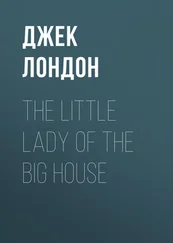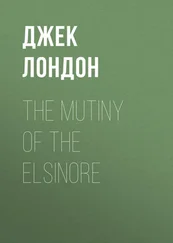Being a foreigner, and a young man, the Carter and the Carpenter explained things to me and advised me. Their advice, by the way, was brief, and to the point; it was to get out of the country. "As fast as God'll let me," I assured them; "I'll hit only the high places, till you won't be able to see my trail for smoke." They felt the force of my figures, rather than understood them, and they nodded their heads approvingly.
"Actually make a man a criminal against 'is will," said the Carpenter. "'Ere I am, old, younger men takin' my place, my clothes gettin' shabbier an' shabbier, an' makin' it 'arder every day to get a job. I go to the casual ward for a bed. Must be there by two or three in the afternoon or I won't get in. You saw what happened to–day. What chance does that give me to look for work? S'pose I do get into the casual ward? Keep me in all day to–morrow, let me out mornin' o' next day. What then? The law sez I can't get in another casual ward that night less'n ten miles distant. Have to hurry an' walk to be there in time that day. What chance does that give me to look for a job? S'pose I don't walk. S'pose I look for a job? In no time there's night come, an' no bed. No sleep all night, nothin' to eat, what shape am I in the mornin' to look for work? Got to make up my sleep in the park somehow" (the vision of Christ's Church, Spitalfield, was strong on me) "an' get something to eat. An' there I am! Old, down, an' no chance to get up."
"Used to be a toll–gate 'ere," said the Carter. "Many's the time I've paid my toll 'ere in my cartin' days."
"I've 'ad three 'a'penny rolls in two days," the Carpenter announced, after a long pause in the conversation. "Two of them I ate yesterday, an' the third to–day," he concluded, after another long pause.
"I ain't 'ad anything to–day," said the Carter. "An' I'm fagged out. My legs is hurtin' me something fearful."
"The roll you get in the 'spike' is that 'ard you can't eat it nicely with less'n a pint of water," said the Carpenter, for my benefit. And, on asking him what the "spike" was, he answered, "The casual ward. It's a cant word, you know."
But what surprised me was that he should have the word "cant" in his vocabulary, a vocabulary that I found was no mean one before we parted.
I asked them what I might expect in the way of treatment, if we succeeded in getting into the Poplar Workhouse, and between them I was supplied with much information. Having taken a cold bath on entering, I would be given for supper six ounces of bread and "three parts of skilly." "Three parts" means three–quarters of a pint, and "skilly" is a fluid concoction of three quarts of oatmeal stirred into three buckets and a half of hot water.
"Milk and sugar, I suppose, and a silver spoon?" I queried.
"No fear. Salt's what you'll get, an' I've seen some places where you'd not get any spoon. 'Old 'er up an' let 'er run down, that's 'ow they do it."
"You do get good skilly at 'Ackney," said the Carter.
"Oh, wonderful skilly, that," praised the Carpenter, and each looked eloquently at the other.
"Flour an' water at St. George's in the East," said the Carter.
The Carpenter nodded. He had tried them all.
"Then what?" I demanded
And I was informed that I was sent directly to bed. "Call you at half after five in the mornin', an' you get up an' take a 'sluice'—if there's any soap. Then breakfast, same as supper, three parts o' skilly an' a six–ounce loaf."
"'Tisn't always six ounces," corrected the Carter.
"'Tisn't, no; an' often that sour you can 'ardly eat it. When first I started I couldn't eat the skilly nor the bread, but now I can eat my own an' another man's portion."
"I could eat three other men's portions," said the Carter. "I 'aven't 'ad a bit this blessed day."
"Then what?"
"Then you've got to do your task, pick four pounds of oakum, or clean an' scrub, or break ten to eleven hundredweight o' stones. I don't 'ave to break stones; I'm past sixty, you see. They'll make you do it, though. You're young an' strong."
"What I don't like," grumbled the Carter, "is to be locked up in a cell to pick oakum. It's too much like prison."
"But suppose, after you've had your night's sleep, you refuse to pick oakum, or break stones, or do any work at all?" I asked.
"No fear you'll refuse the second time; they'll run you in," answered the Carpenter. "Wouldn't advise you to try it on, my lad."
"Then comes dinner," he went on. "Eight ounces of bread, one and a arf ounces of cheese, an' cold water. Then you finish your task an' 'ave supper, same as before, three parts o' skilly any six ounces o' bread. Then to bed, six o'clock, an' next mornin' you're turned loose, provided you've finished your task."
We had long since left Mile End Road, and after traversing a gloomy maze of narrow, winding streets, we came to Poplar Workhouse. On a low stone wall we spread our handkerchiefs, and each in his handkerchief put all his worldly possessions, with the exception of the "bit o' baccy" down his sock. And then, as the last light was fading from the drab–coloured sky, the wind blowing cheerless and cold, we stood, with our pitiful little bundles in our hands, a forlorn group at the workhouse door.
Three working girls came along, and one looked pityingly at me; as she passed I followed her with my eyes, and she still looked pityingly back at me. The old men she did not notice. Dear Christ, she pitied me, young and vigorous and strong, but she had no pity for the two old men who stood by my side! She was a young woman, and I was a young man, and what vague sex promptings impelled her to pity me put her sentiment on the lowest plane. Pity for old men is an altruistic feeling, and besides, the workhouse door is the accustomed place for old men. So she showed no pity for them, only for me, who deserved it least or not at all. Not in honour do grey hairs go down to the grave in London Town.
On one side the door was a bell handle, on the other side a press button.
"Ring the bell," said the Carter to me.
And just as I ordinarily would at anybody's door, I pulled out the handle and rang a peal.
"Oh! Oh!" they cried in one terrified voice. "Not so 'ard!"
I let go, and they looked reproachfully at me, as though I had imperilled their chance for a bed and three parts of skilly. Nobody came. Luckily it was the wrong bell, and I felt better.
"Press the button," I said to the Carpenter.
"No, no, wait a bit," the Carter hurriedly interposed.
From all of which I drew the conclusion that a poorhouse porter, who commonly draws a yearly salary of from seven to nine pounds, is a very finicky and important personage, and cannot be treated too fastidiously by—paupers.
So we waited, ten times a decent interval, when the Carter stealthily advanced a timid forefinger to the button, and gave it the faintest, shortest possible push. I have looked at waiting men where life or death was in the issue; but anxious suspense showed less plainly on their faces than it showed on the faces of these two men as they waited on the coming of the porter.
He came. He barely looked at us. "Full up," he said and shut the door.
"Another night of it," groaned the Carpenter. In the dim light the Carter looked wan and grey.
Indiscriminate charity is vicious, say the professional philanthropists. Well, I resolved to be vicious.
"Come on; get your knife out and come here," I said to the Carter, drawing him into a dark alley.
He glared at me in a frightened manner, and tried to draw back. Possibly he took me for a latter–day Jack–the–Ripper, with a penchant for elderly male paupers. Or he may have thought I was inveigling him into the commission of some desperate crime. Anyway, he was frightened.
It will be remembered, at the outset, that I sewed a pound inside my stoker's singlet under the armpit. This was my emergency fund, and I was now called upon to use it for the first time.
Читать дальше












